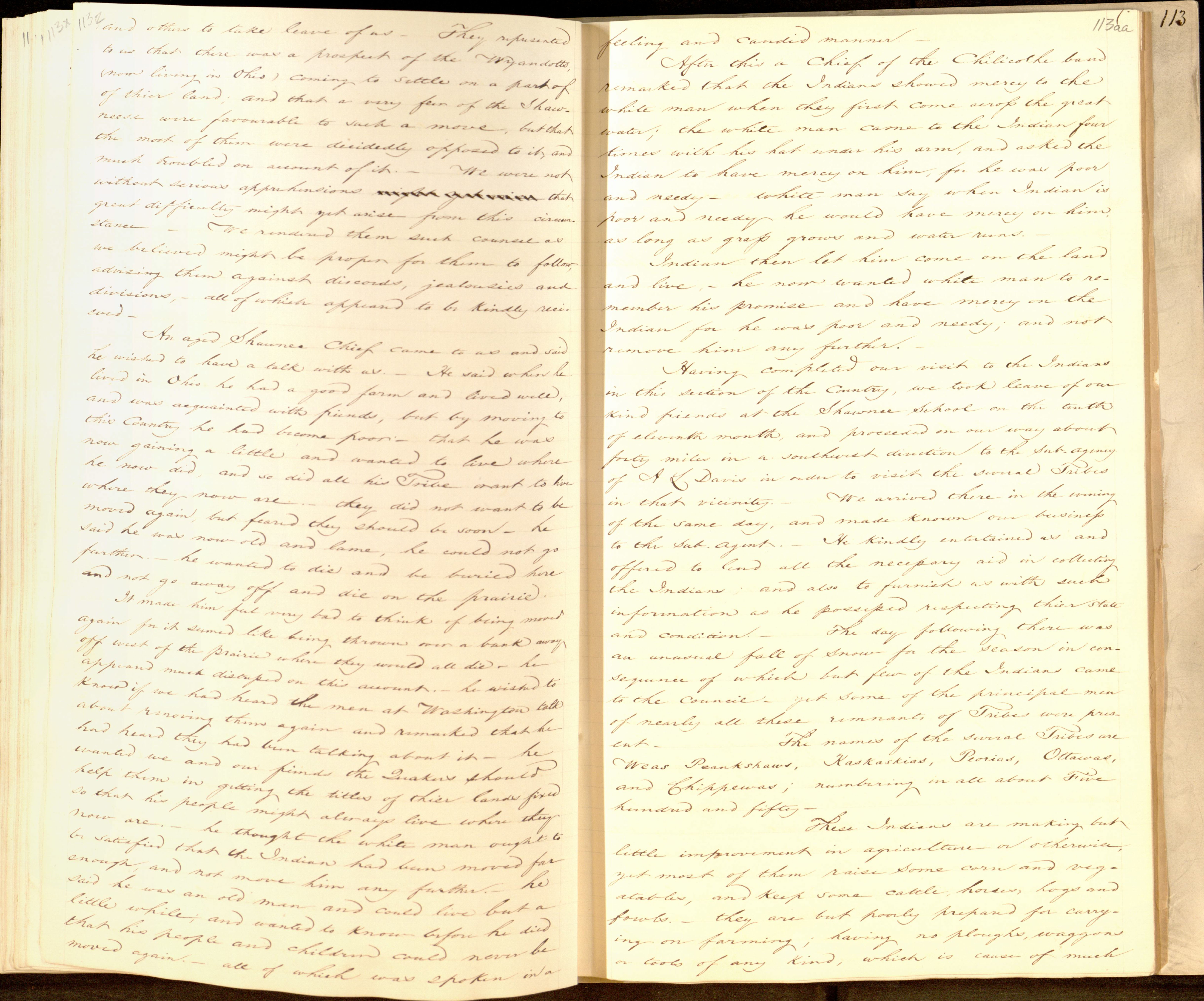and others to take leave of us. They represented
to us that there
was a prospect of the Wyandotts
(now living in Ohio
of thier land; and that a very few of the Shaw-
neese
the most of them were decidedly opposed to it and
much troubled on account of it. We were not
without serious apprehensions that
great difficulty might yet arise from this circum-
stance. We rendered them such counsel as
we believed might be proper for them to follow,
advising them against discords, jealousies and
divisions, all of which appeared to be kindly reci-eved.
An aged Shawnee
he wished to have a talk with us. He said when he
lived in Ohio
and was acquainted with friends, but by moving to
this country he had become poor--that he was
now gaining a little and wanted to live where
he now did, and so did all his Tribe want to him
where they now are--they did not want to be
moved again, but feared they should be soon. he
said he was now old and lame, he could not go
farther. he wanted to die and be buried here
and not go away off and die on the prairie.
It made him feel very bad to think of being moved
again for it seemed like
being thrown over a bank away
off west of the prairie where they would all
die--he
appeared much distressed on this amount. he wished to
know if
we had heard the men at Washington
about removing them again and remarked that he
had heard they had been talking about it--he
wanted we and our friends the Quakers should
help them in getting the titles of thier lands fixed
so that his people might always live where they
now are. he thought the white man ought to
be satisfied that the Indian had been moved far
enough, and not move him any further. he
said he was an old man and could live but a
little while; and wanted to know before he died
that his people and children could never be
moved again--all of which was spoken in a
feeling and candid manner.
After this a Chief of the Chilicothe
remarked that the Indians showed mercy to the
white man when they first come across the great
water; the white man came to the Indian four
times with his hat under his arm, and asked the
Indian to have mercy on him, for he was poor
and needy. White man say when Indian is
poor and needy he would have mercy on him,
as long as grass grows and water runs.
Indian then let him come on the land
and live, he now wanted white man to
re-
member his promise and have mercy on the
Indian for he was poor
and needy; and not
remove him any further.
Having completed our visit to the Indians
in this section of the Country, we
took leave of our
kind friends at the Shawnee
of eleventh month, and proceed on our way about
forty miles in a southwest direction to the sub. agency
of A L Davis
in that vicinity. We arrived there in the evening
of the same day, and made known our business
to the sub. agent. He kindly entertained us and
offered to lend all the necessary aid in collecting
the Indians; and also to furnish us with such
information as he possessed respecting thier state
and condition. The day following there was
an unusual fall of snow for the season in con-
sequence of which but few of the Indians came
to the council--yet some of the principal men
of nearly all these remnants of Tribes were pres-
ent. The names of the several Tribes are
Weas
and Chippewas
hundred and fifty.
These Indians are making but
little improvement in agriculture or otherwise,
yet most of them raise some corn and veg-
atables, and keep some
cattle, horses, hogs and
fowls--they are but poorly prepared for carry-
ing on farming; having no ploughs, waggons
or tools of any kind, which
is cause of much

